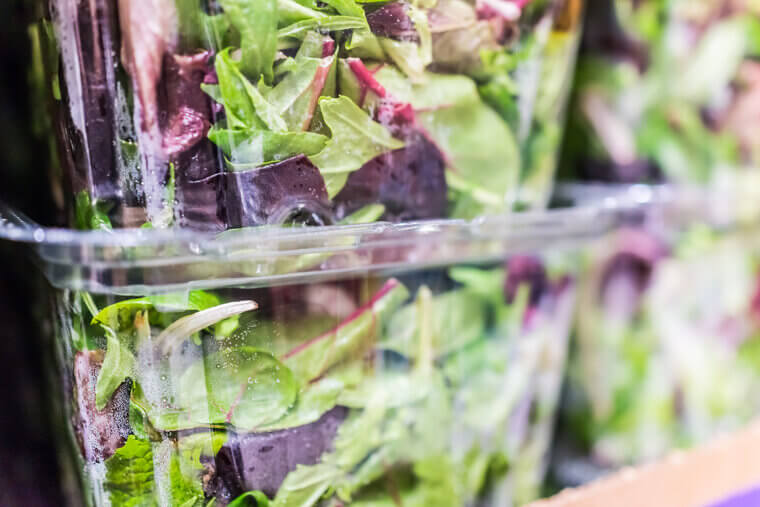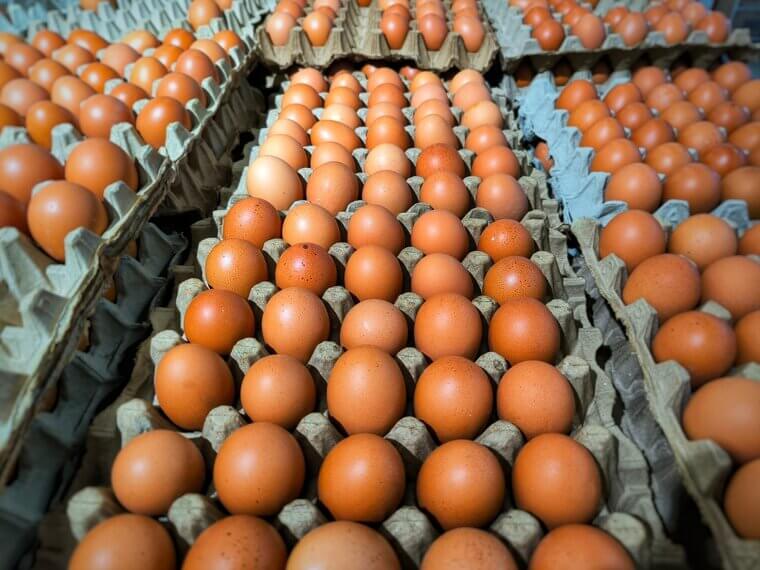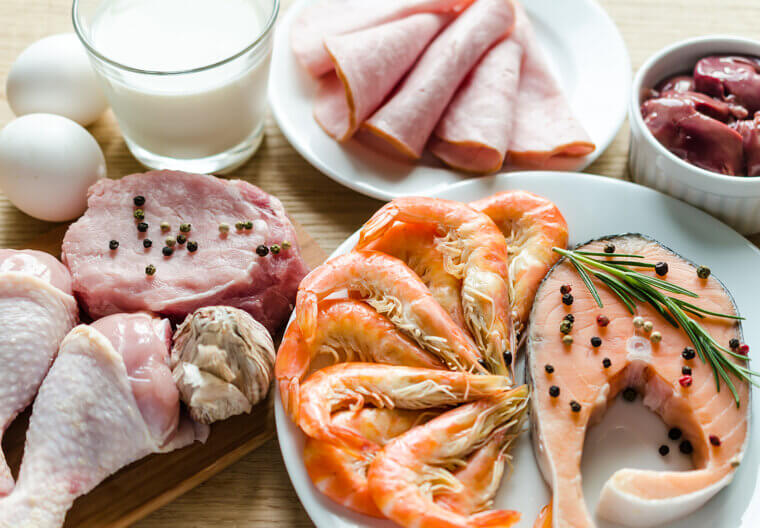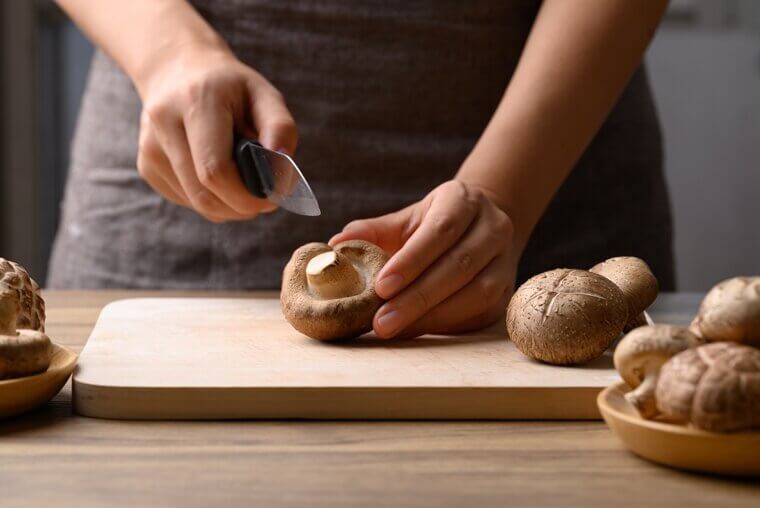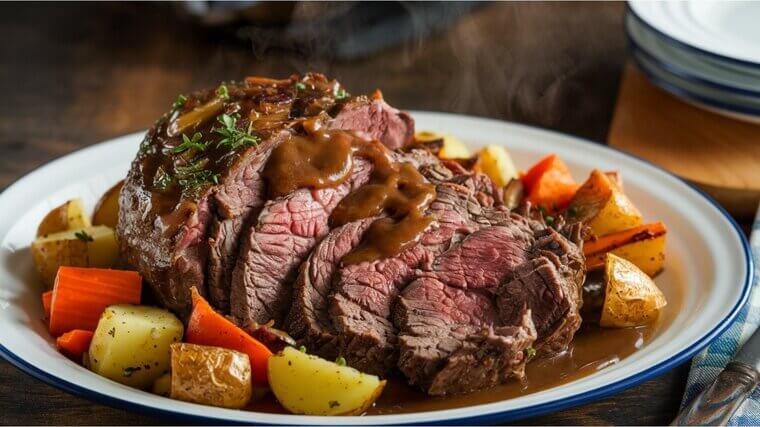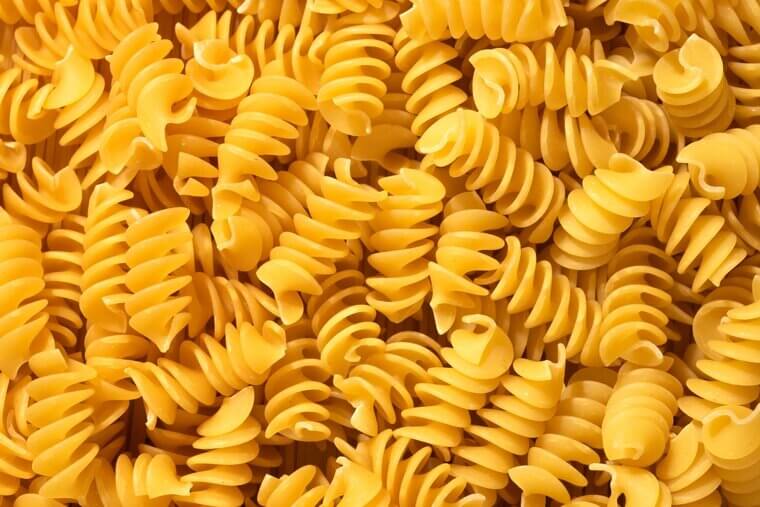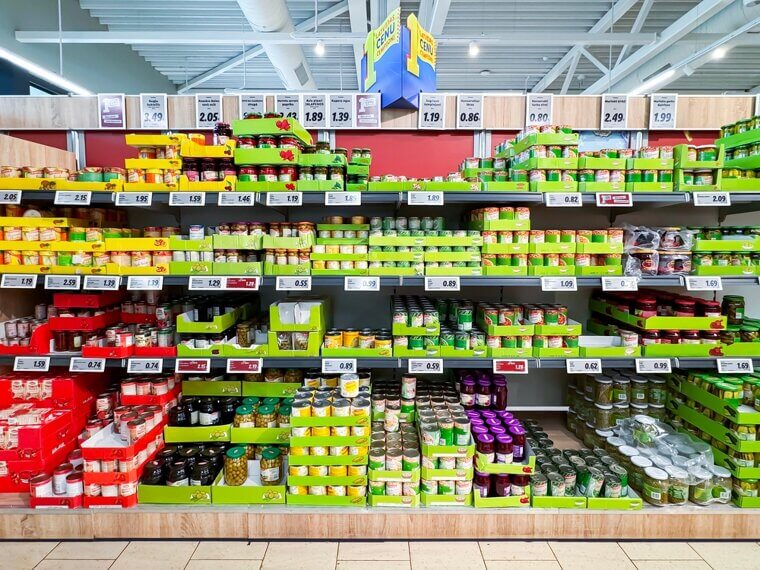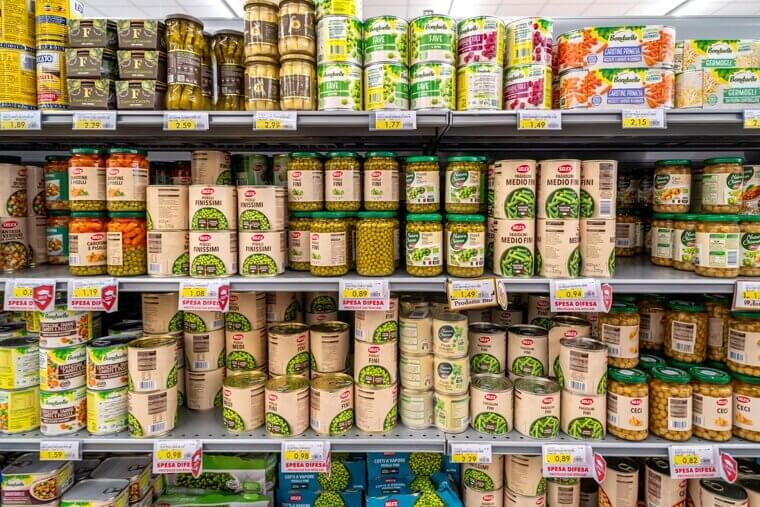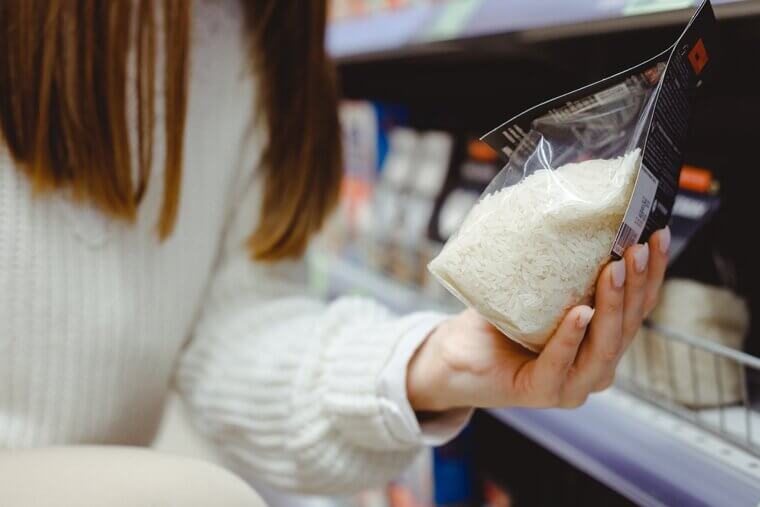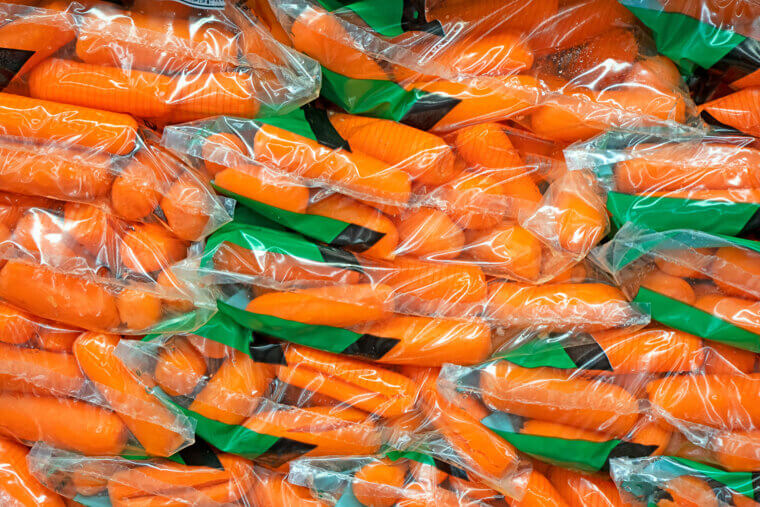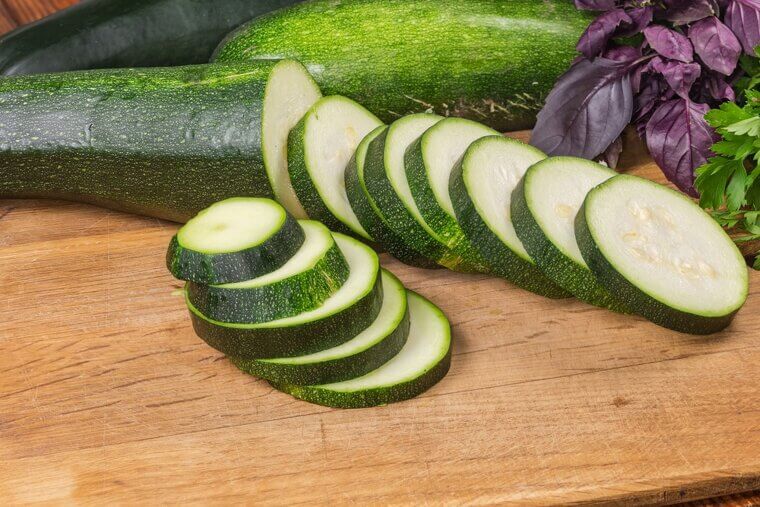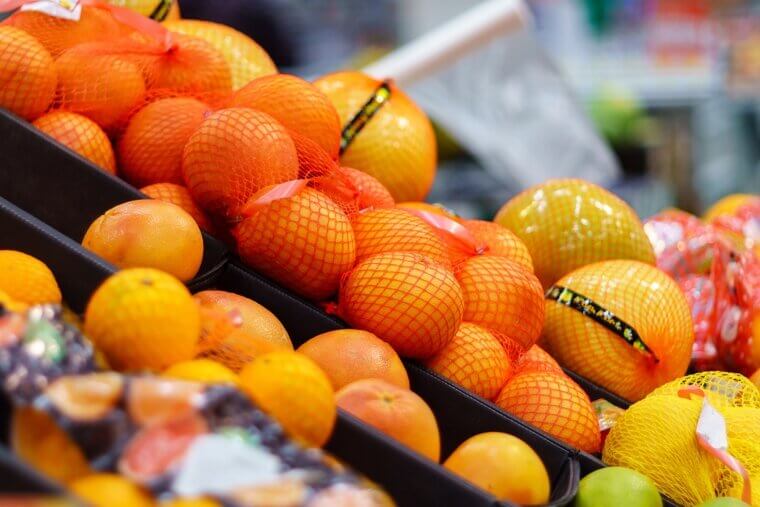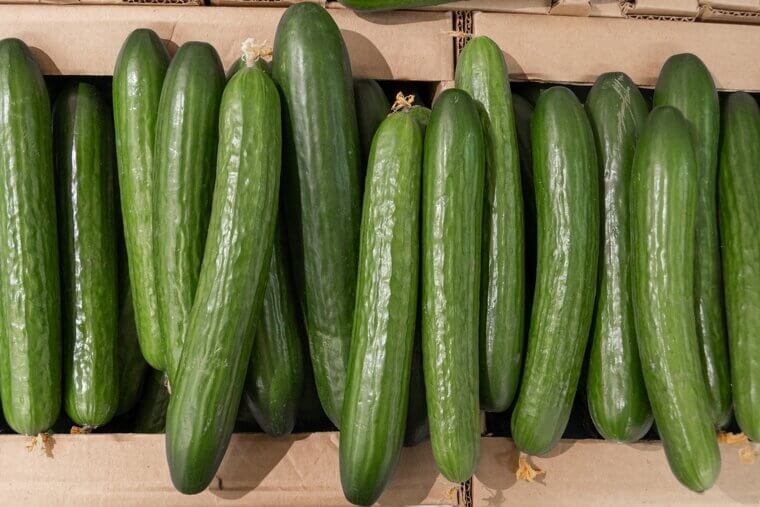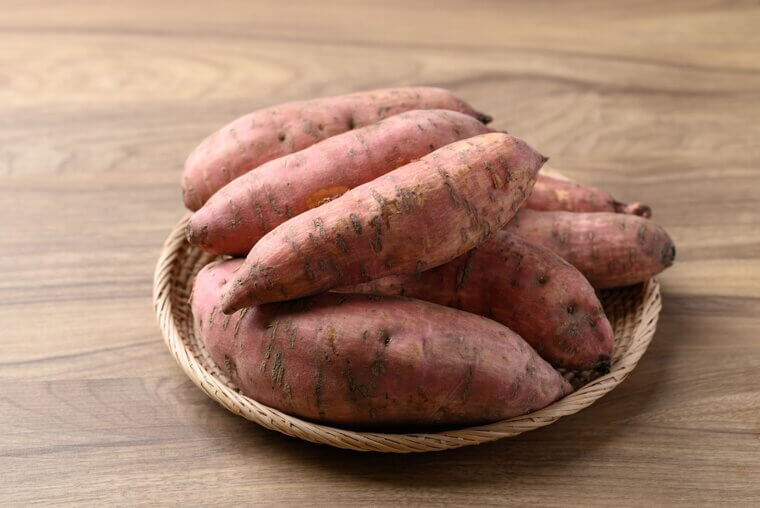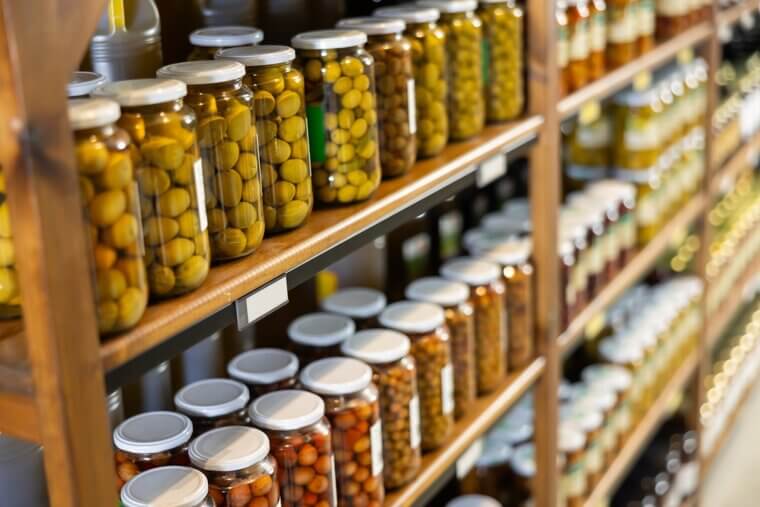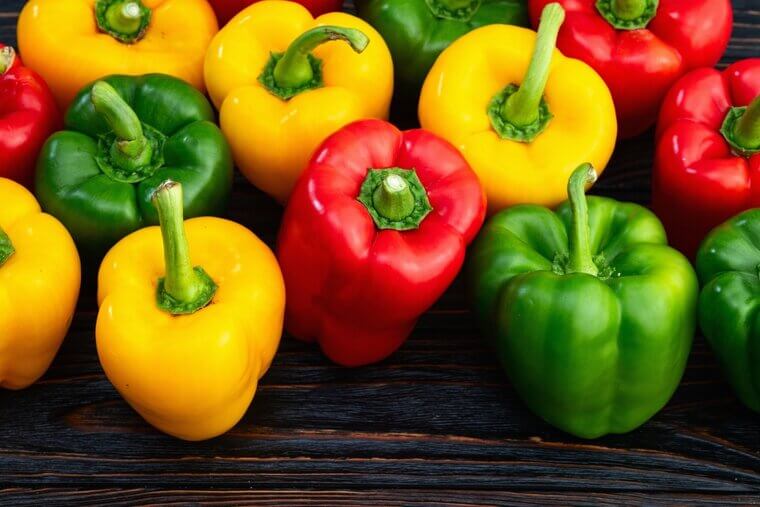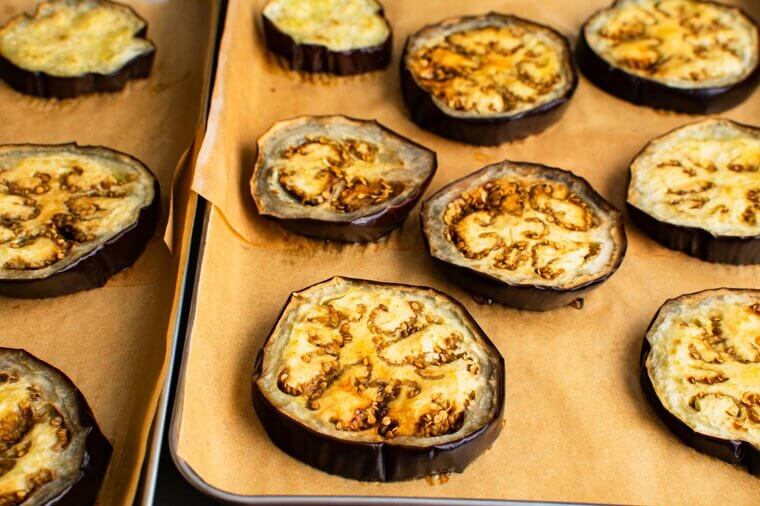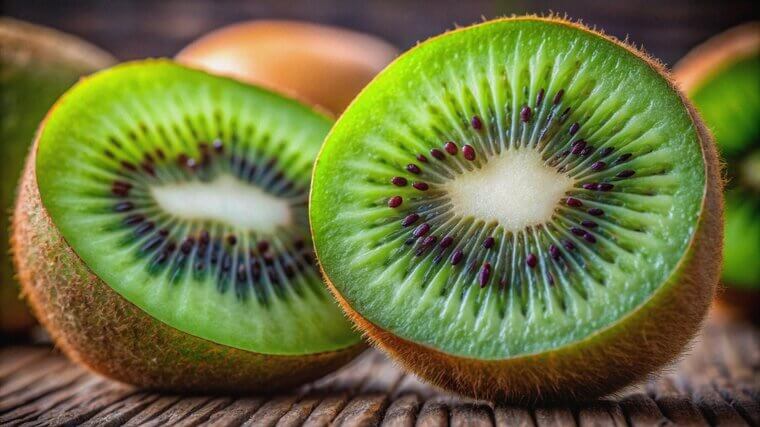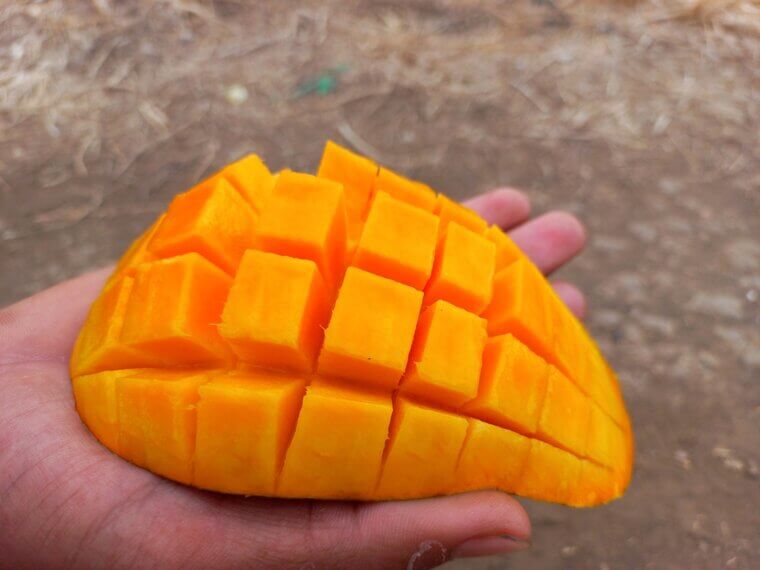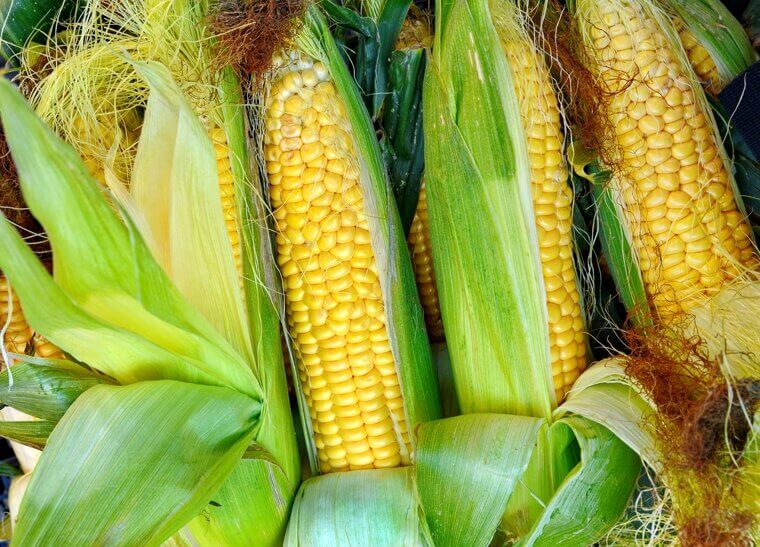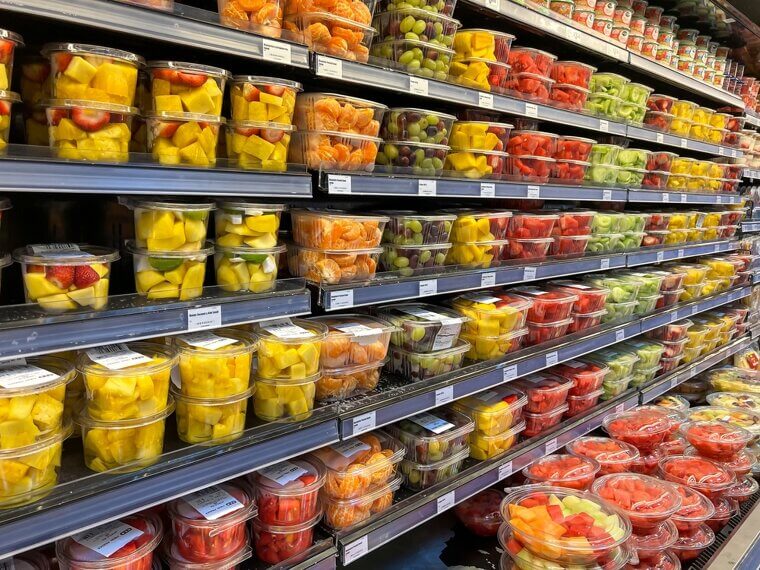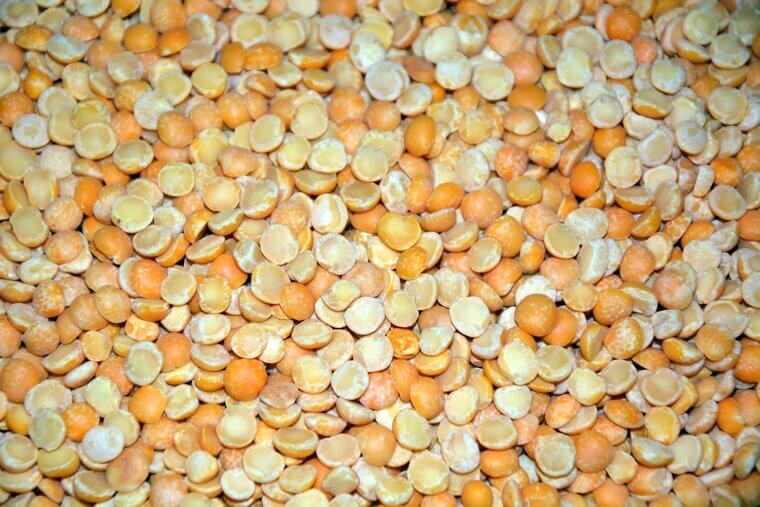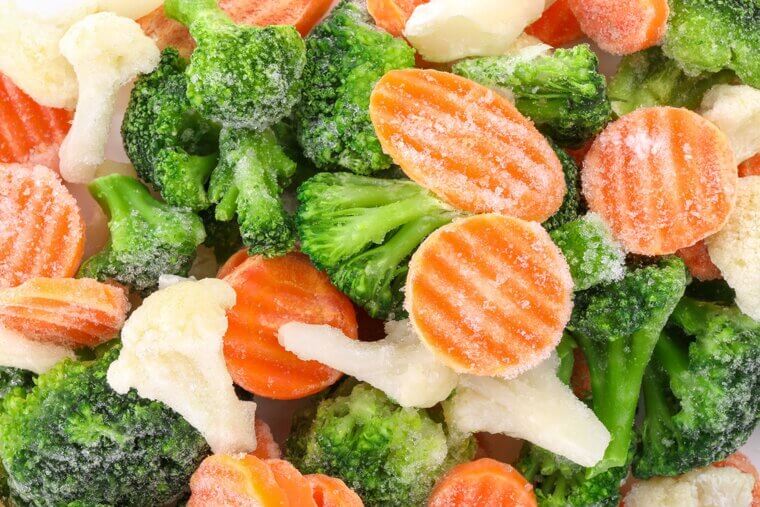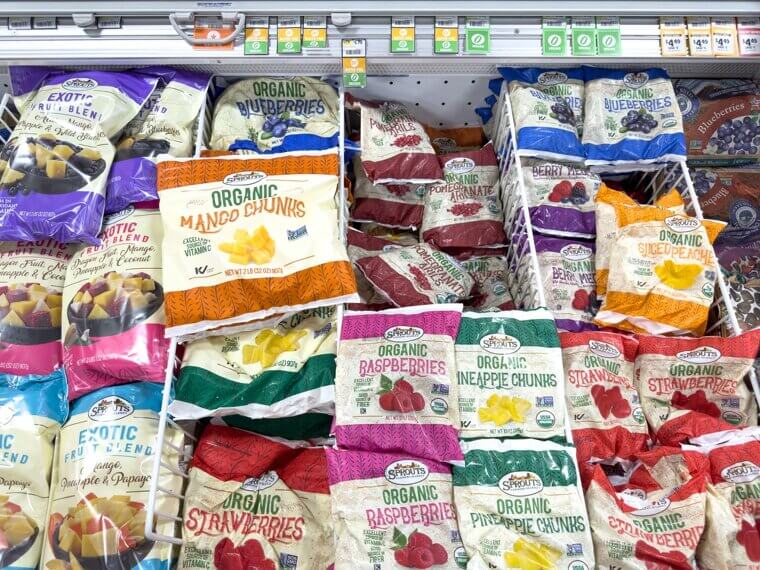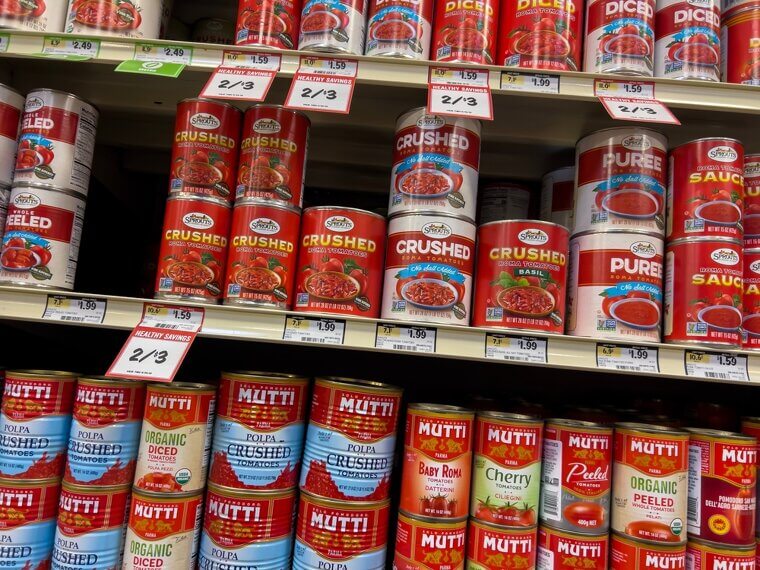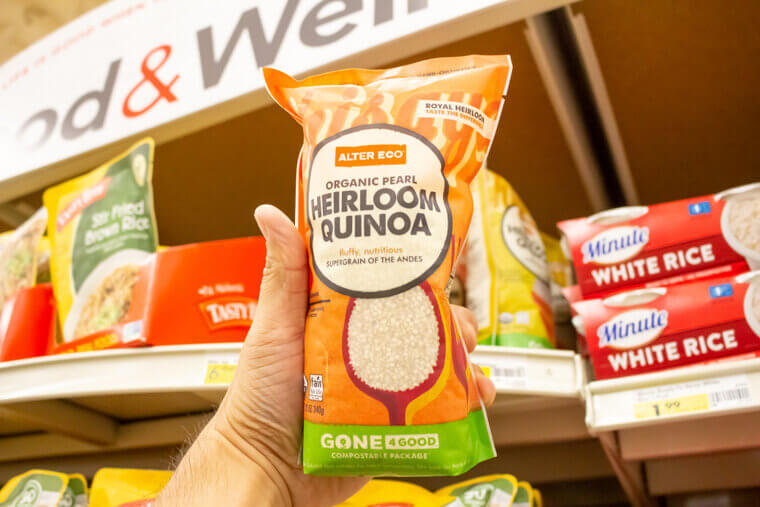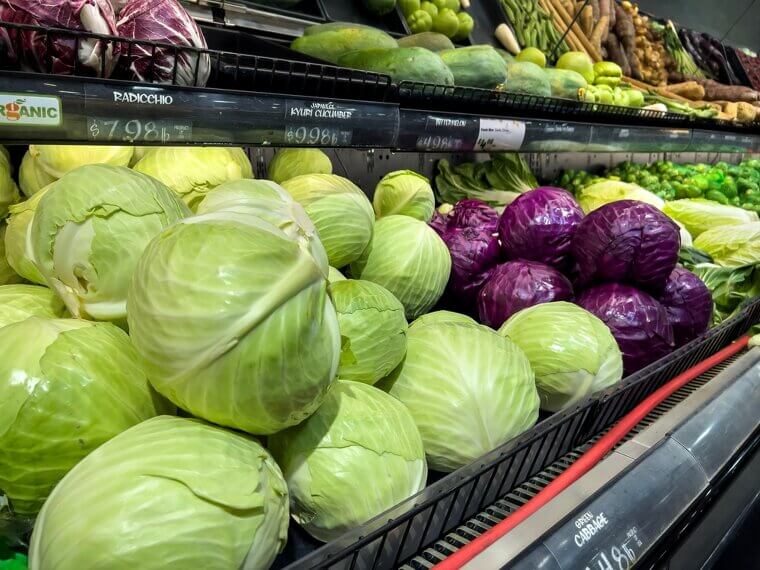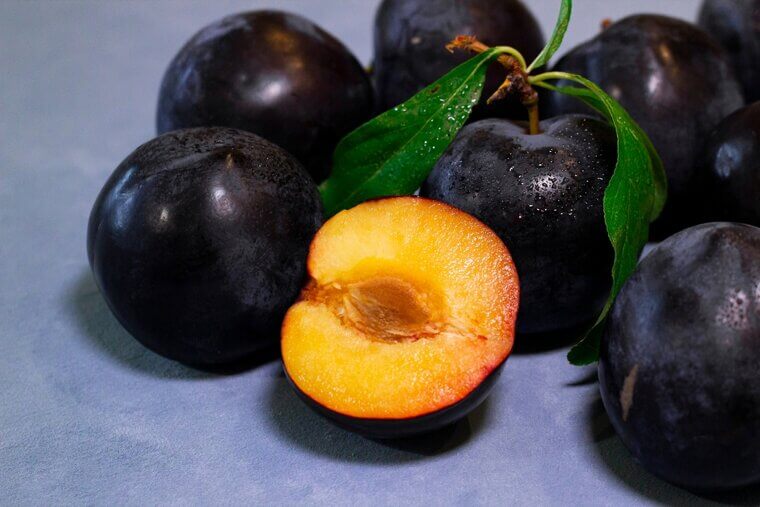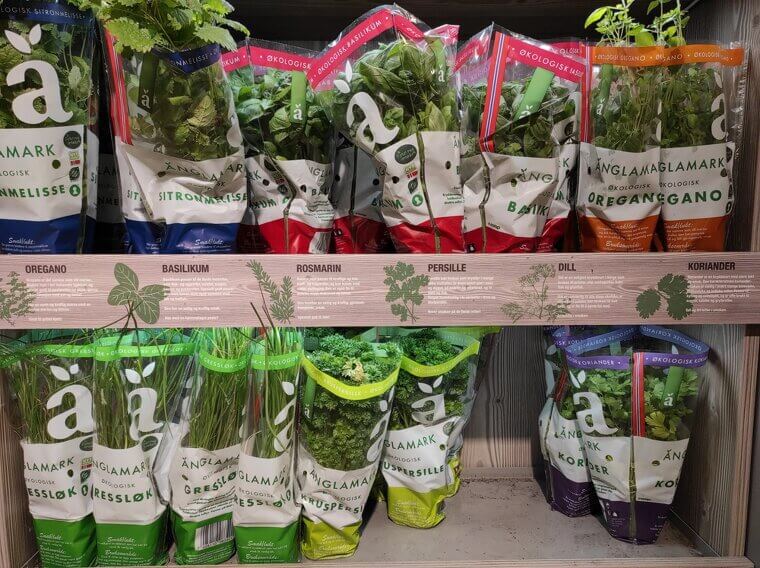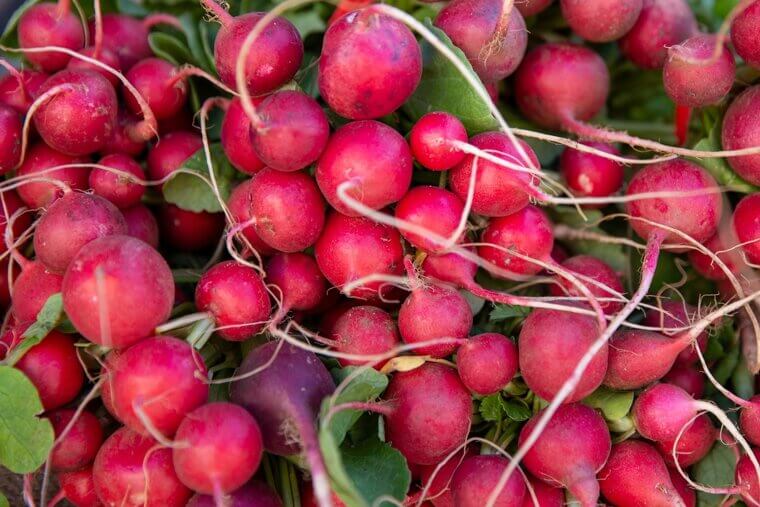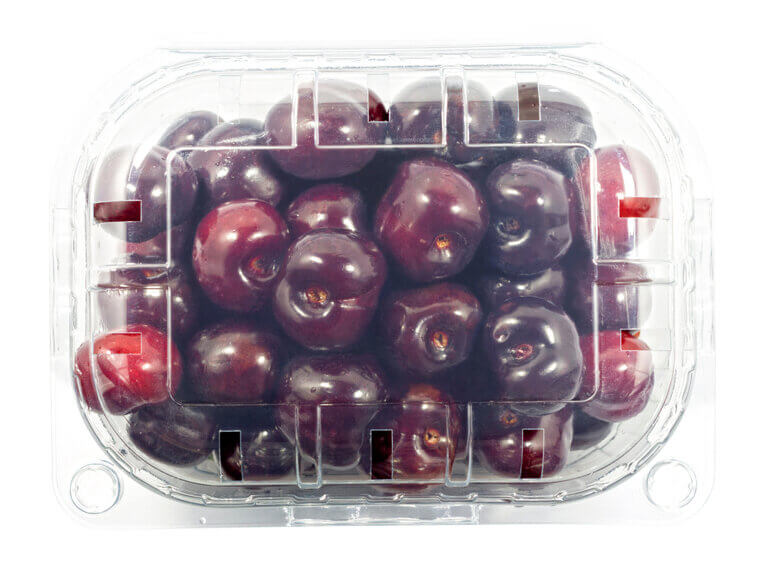Prewashed Produce And Salads
When buying fresh fruits and vegetables from the market, it’s perfectly fine to wash them, even with a specially formulated produce cleaner. However, if you purchase a premade salad in a bag, it will indicate if it’s prewashed, meaning there’s no need to wash it again. This not only saves water and time but also prevents cross-contamination. Simply open the bag, pour the salad into a bowl, and enjoy a quick, convenient, and safe meal without any extra steps.
For other bagged vegetables meant for cooking, place them directly in the pan or oven. This approach ensures convenience and safety, keeping your food preparation efficient and hygienic while also maintaining the quality and taste of your meals.
Eggs
While washing eggs before cracking them open might seem reasonable, it’s unnecessary in the U.S. due to strict regulations. Eggs are thoroughly cleaned with soap and hot water before packaging, removing their natural protective coating, which is then replaced with a light mineral oil coating. This process ensures they are safe for consumption. When cooking eggs, make sure the yolk is firm to avoid the risk of salmonella. Proper cooking is essential for ensuring food safety and preventing foodborne illnesses.
Properly cooked eggs are safe to eat, so there’s no need to wash them again. This practice saves time and prevents potential contamination, ensuring your eggs are both safe and delicious.
Poultry And Fish
Rinsing raw chicken or fish filets under the faucet before cooking might seem like a good idea, but it’s actually counterproductive. Not only does it fail to clean your food, but it can also spread germs and contaminate your kitchen surfaces further. The best way to ensure your chicken and fish are free of bacteria is to cook them thoroughly. Proper cooking kills harmful bacteria, making your food safe to eat and reducing the risk of foodborne illnesses. Always prioritize cooking over rinsing for safety.
So, skip the rinse and prioritize thoroughly cooking your meat to ensure it’s safe and healthy for consumption. Proper cooking is significantly more effective in eliminating harmful bacteria and preventing foodborne illnesses, ensuring your meals are both delicious and safe.
Mushrooms
Washing mushrooms in water is a significant mistake because they are highly absorbent. While the water itself isn’t harmful unless contaminated, mushrooms can become soggy and rubbery when they absorb too much, altering their taste and texture. Despite being rinsed, store-bought mushrooms often have some dirt. The best solution is to lightly dab them with a damp washcloth instead. This method effectively removes dirt without soaking the mushrooms, preserving their firm texture and rich flavor, ensuring they remain delicious in your recipes.
So, instead of washing mushrooms under running water, use a gentle wipe to clean them. This method helps maintain their firmness and flavor, ensuring they stay delicious and perfect for your recipes. It’s a simple yet effective way to prepare mushrooms.
Beef
There are several reasons to avoid washing steaks with water. First, like with chicken or fish, rinsing beef can spread bacteria around your kitchen, increasing the risk of contamination. Second, it affects the taste and texture; extra moisture creates steam during cooking, impacting the meat's quality. For a perfect sear on sirloin or ground chuck, it’s best to limit water exposure. If you must wash beef, pat it dry with a paper towel to remove excess moisture before cooking.
Marinating steaks is great, but always keep them refrigerated. After cooking, make sure to wash the marinade container thoroughly to avoid any risk of food poisoning. Following these steps ensures your beef remains safe to eat and deliciously flavorful.
Pasta
Washing pasta with water before cooking is unnecessary and ineffective. Unfortunately, many people mistakenly believe they should rinse pasta after cooking, which is a big mistake if you want delicious pasta. Rinsing removes the starches that help sauces cling to the pasta, making the dish less flavorful. Conversely, washing grains like rice or quinoa before cooking is important to achieve the desired taste and consistency. This step removes excess starch and any impurities, ensuring the grains cook evenly and have the right texture.
The starches in pasta are crucial for absorbing sauces, so avoid rinsing it. However, for grains, rinsing helps improve their texture and flavor. Understanding these differences ensures you prepare pasta and grains correctly for the best culinary results.
Canned Beans
Washing canned beans isn’t always necessary. The liquid in canned beans, often discarded, contains valuable nutrients like vitamins and proteins. This liquid can enhance the flavor and texture of your dishes, making them richer and more cohesive. Additionally, skipping the rinse can save time and reduce water usage, contributing to a more sustainable kitchen practice. However, if you’re concerned about sodium intake or prefer a less starchy texture, a quick rinse can help.
Whether you choose to rinse canned beans or not depends on your dietary needs and the specific recipe you’re preparing. Embrace the convenience and nutritional benefits of using canned beans straight from the can, making meal prep quick and easy!
Canned Vegetables
It's not always necessary to wash canned vegetables. The liquid of canned veggies contains vital components, including vitamins and minerals, which can improve the taste and nutritious content of your meals. Furthermore, because the canning process uses high heat to destroy dangerous bacteria, the vegetables are safe to eat right out of the can. Meal preparation can be made more convenient and environmentally friendly by omitting the rinse, which can also save time and water.
However, if you're worried about the sodium content, you can choose low-sodium types or quickly rinse them to lower the salt content. In the end, it comes down to dietary requirements and personal preference.
Rice
Not all rice needs to be washed. Most contaminants are eliminated during the milling process, allowing rice to be cooked directly from the bag. Additionally, washing rice can strip away vital elements like iron, zinc, and copper. The starch that remains on the rice grains can actually enhance the texture of certain foods, such as risotto or sushi, by producing a creamier consistency. Moreover, avoiding the rinse saves time and water, making meal preparation more efficient and eco-friendly.
Ultimately, whether you wash your rice depends on personal preference and the specific dish you’re preparing. Embrace the convenience and nutritional benefits of using unwashed rice, making your cooking process simpler and quicker while still enjoying delicious results!
Carrots
Carrots don't always need to be washed. Although carrots are usually planted underground, most dirt and bacteria may be removed with a vigorous brush cleaning. If you peel or wash carrots too much, you may lose their skin's important components, which include fiber, vitamins, and antioxidants. Furthermore, the skin's natural layer keeps the carrots' flavor and freshness intact. By saving time and water, skipping the wash can improve the sustainability of your culinary activities.
Whether or not you wash your carrots ultimately comes down to personal taste and how you want to incorporate them into your dishes. Savor the ease of use and health advantages of raw carrots!
Zucchini
Did you know that you can eat zucchini without washing it? Zucchini's thin, soft skin is packed with important nutrients like vitamins and antioxidants. Additionally, because the canning process uses high heat to eliminate hazardous bacteria, zucchini is safe to consume right out of the can. Meal preparation can be made more convenient and environmentally friendly by omitting the rinse, which can also save time and water. However, a brief washing can assist if you want a cleaner flavor or are worried about pesticides.
Whether or not to wash your zucchini ultimately depends on personal preference and the specific recipe you’re preparing. Enjoy the convenience and health benefits of raw zucchini, which can be a nutritious addition to your meals without extra preparation!
Citrus Fruits
Stop washing your citrus fruits! Citrus fruits like oranges, lemons, and limes have thick peels that naturally protect the inner fruit from impurities. Additionally, these fruits often have a wax coating that helps keep them fresh and prevents moisture loss. By skipping the rinse, you save time and water, making your culinary operations more sustainable. This small change can contribute to a more eco-friendly kitchen routine while still enjoying fresh, clean fruit.
However, a brief washing can assist if you're utilizing the zest or are worried about pesticides. Ultimately, your personal preferences and intended use will determine whether or not you wash your citrus fruits.
Cucumbers
If you peel or wash cucumbers too much, you may lose their skin’s important components, including fiber, vitamins, and antioxidants. The skin also contains a natural wax covering that helps keep cucumbers fresher for longer and prevents moisture loss. By skipping the rinse, you save time and water, enhancing the sustainability of your culinary operations. However, if you’re concerned about pesticide residue, a brief wash can help. This way, you maintain the nutritional benefits while ensuring your cucumbers are clean and safe to eat.
Whether or not to wash your cucumbers ultimately depends on your own tastes and how you want to use them in your dishes. Savor the ease of use and health advantages of raw cucumbers!
Potatoes
When potatoes are cleaned, important elements such as fiber, vitamins, and antioxidants may be lost from the skin. The skin also contains a naturally occurring layer of soil that helps keep potatoes fresh and prevents moisture loss. By skipping the rinse, you save time and water, enhancing the sustainability of your culinary operations. However, if you prefer a cleaner flavor or are concerned about pesticide residue, a brief rinse can be beneficial. This way, you maintain the nutritional benefits while ensuring your potatoes are clean and safe to eat.
Whether or not you wash your potatoes ultimately comes down to personal taste and how you want to use them in your recipes. So, refrain from washing your potatoes in order to enjoy the maximum benefits they can offer.
Olives
Olives are safe to eat straight out of the jar since the brine they are kept in contains salt and preservatives. Their flavor is also enhanced by this brine, which makes them a delectable complement to a variety of recipes. Olives lose their flavor and nutritional value when they are washed since these healthy components are gone. Furthermore, omitting the rinse promotes more environmentally friendly cooking practices by saving time and water.
However, a brief rinse can help if you prefer a softer flavor or are concerned about too much salt. Whether or not to wash olives ultimately comes down to your own tastes and how you plan to incorporate them into your dishes.
Peppers
Peppers do not always require washing. Excessive washing of peppers might reduce their skin’s nutritious content, which includes fiber, vitamins, and antioxidants. Additionally, peppers frequently have a natural wax coating that keeps them fresh and prevents moisture loss. By skipping the rinse, you save time and water, making your cooking habits more environmentally friendly. However, a brief rinse can help if you want a cleaner taste or are concerned about pesticide residue.
The choice to wash peppers ultimately comes down to personal taste and how you want to incorporate them into your dishes.
Eggplant
You still wash your eggplants, but why? When eggplants are washed too often, their skin loses important components like fiber, vitamins, and antioxidants. Modern eggplant cultivars are also bred to be less bitter, which lessens the need for pre-cooking procedures. By saving time and water, skipping the rinse can improve the sustainability of your culinary operations. However, a brief rinse can assist if you want a cleaner flavor or are worried about pesticide residue.
The decision to wash your eggplants ultimately comes down to personal taste and how you want to include them into your dishes. Therefore, to reap the full health advantages of eggplants, avoid cleaning them from now on.
Kiwis
While it makes sense to want to wash your kiwis, doing so actually deprives them of their health benefits. Eating the fuzzy skin of kiwis can help your health because it's full of nutrients like fiber and vitamin C. By saving time and water, skipping the rinse can help promote more environmentally friendly cooking methods. However, a brief rinse can assist if you want a cleaner flavor or are worried about pesticide residue.
Whether or not to wash your kiwis ultimately comes down to personal taste and how you want to include them into your dishes.
Mangoes
Mangoes don’t usually require washing. The thick skin of mangoes acts as a natural barrier, protecting the juicy flesh inside from impurities. Additionally, the canning process ensures that any harmful bacteria on the surface are removed, making them safe to consume straight from the store. By skipping the rinse, you save time and water, contributing to more environmentally friendly cooking practices. However, if you prefer a cleaner taste or are concerned about pesticide residue, a quick rinse can be beneficial.
A brief rinse can assist if you want a cleaner flavor or are worried about pesticide residue. Whether or not you wash your mangoes ultimately comes down to personal taste and how you want to incorporate them into your recipes.
Corn On The Cob
The canning process guarantees that any dangerous microorganisms are removed, while the husk and silk naturally shield the kernels from impurities. Furthermore, avoiding extensive washing helps preserve corn’s inherent sugars and nutrients, ensuring a sweeter and more nutritious product. By saving time and water, skipping the rinse can enhance the sustainability of your culinary operations. However, if you prefer a cleaner flavor or are concerned about pesticide residue, a brief rinse can be beneficial. This way, you balance convenience, nutrition, and cleanliness in your kitchen routine.
In the end, whether you wash your corn (off or on the cob) depends on your preparation method and personal preferences. Enjoy the delicious flavor and convenience of unwashed corn, which can save you time and effort while still providing a tasty treat!
Pre-Sliced Fruits
These fruits are safe to consume right out of the packaging because they are usually treated in a sanitary manner. A thorough cleaning step that gets rid of bacteria and debris is frequently part of the pre-slicing procedure. Furthermore, cleaning already-sliced fruits may introduce pollutants from your kitchen surfaces, raising the possibility of contracting a foodborne illness. By saving time and water, skipping the rinse makes your kitchen operations more environmentally friendly.
However, a brief rinse can help if you prefer a cleaner taste or are concerned about any residual chemicals. Ultimately, the decision comes down to convenience and personal preference, allowing you to enjoy your food the way you like it best.
Shelled Peas
Peas are safe to eat right out of the pod since shelling removes most of the dirt and debris. Additionally, avoiding excessive washing helps maintain the peas’ natural sugars and nutrients, ensuring they remain sweet and nutritious. By skipping the rinse, you save time and water, promoting more environmentally friendly cooking methods. However, if you prefer a cleaner flavor or are concerned about pesticide residue, a brief rinse can be beneficial. This way, you balance convenience, nutrition, and cleanliness in your culinary routine.
Whether or not to wash your shelled peas ultimately depends on your personal taste and how you plan to incorporate them into your dishes. Consider your preferences and the specific recipe requirements to decide the best approach for preparing your peas.
Frozen Vegetables
Washing frozen vegetables is frequently not necessary. Vegetables are properly washed and blanched—a procedure that eliminates dirt and bacteria—before freezing. This guarantees that they are safe to consume right out of the container. Furthermore, cleaning frozen veggies may introduce contaminants from your kitchen surfaces, which could raise your chance of contracting a foodborne illness. By saving time and water, skipping the rinse makes your kitchen operations more environmentally friendly.
If you are worried, a brief rinse can be helpful if you prefer a cleaner taste or are concerned about any residual chemicals. Ultimately, the decision is based on convenience and personal preference, allowing you to enjoy your food in the way you find most satisfying.
Frozen Fruit
Since frozen fruit is properly cleaned before freezing, it is safe to consume right out of the container. In order to preserve its nutritional content and stop bacteria from growing, the fruit is picked when it is at its ripest, cleaned, and then flash frozen. Fruits' rich sugar and acidity further suppress dangerous germs. Therefore, unless the box expressly states otherwise, there is no need to wash frozen fruit before eating it.
Because of this, frozen fruit is a ready-to-eat, convenient choice that is perfect for smoothies, baking, or on-the-go snacking. Enjoy the ease and health benefits without any extra steps, making it an ideal option for a busy lifestyle.
Canned Tomatoes
Washing canned tomatoes is unnecessary because the canning process itself ensures they are clean and safe to eat. During canning, tomatoes are thoroughly washed, peeled, and cooked at high temperatures, which eliminates any harmful bacteria or contaminants. This process also preserves the tomatoes’ natural flavors and nutrients, making them ready to use straight from the can. By skipping the rinse, you save time and water, making your cooking practices more efficient and environmentally friendly.
Additionally, rinsing canned tomatoes can wash away some of the rich tomato juices that enhance the flavor of your dishes. Therefore, you can confidently use canned tomatoes without the need for additional washing.
Prewashed Quinoa
Because prewashed quinoa has already been thoroughly cleaned to remove saponins—natural substances that can give quinoa a bitter taste—it is ready to cook right out of the container. This pre-rinsing process ensures that the quinoa is free of any residue that could alter its flavor or texture. Consequently, you can save time and water by omitting the extra rinsing step. This not only makes your cooking process more efficient but also promotes more sustainable kitchen practices by reducing water usage.
Prewashed quinoa is a great option for quick and simple meal preparation because of its convenience. Just follow the package's cooking directions to reap the health benefits of quinoa without having to do any additional washing.
Cabbage
Cabbage does not always need to be washed before cooking, especially if you remove the outer leaves, which often bear the most dirt and pesticides. The inner layers are typically clean and safe to eat as they are naturally protected. Additionally, cooking cabbage thoroughly can eliminate any remaining bacteria or contaminants, ensuring it is safe to consume. This makes cabbage a convenient vegetable to prepare, saving you time and effort in the kitchen. By skipping the wash, you also conserve water, making your cooking practices more sustainable.
However, if you prefer to eat it raw, a quick rinse can help remove any residual dirt. This way, you can enjoy the simplicity and convenience of preparing cabbage without the need for extensive washing, making your meal prep easier and faster.
Plums
Plums generally do not need to be washed before eating because their smooth skin makes it difficult for dirt and bacteria to adhere. Additionally, plums are often pre-washed before packaging, ensuring they are clean and safe to consume. The natural waxy coating on plums also acts as a barrier against contaminants. If you prefer to wash them, a quick rinse under cold running water is sufficient to remove any surface residue.
This convenience makes plums an easy and healthy snack option, ideal for enjoying straight out of the bag without any additional preparation. Their natural sweetness and portability make them perfect for quick, nutritious snacking anytime, anywhere, with minimal effort.
Bagged Herbs
Because they are usually already cleaned and ready to use, bagged herbs are a practical choice for cooking. They are cleaned to ensure they are safe to eat right from the packaging by eliminating bacteria, dirt, and pesticides. This saves you time and effort in the kitchen by removing the need for further washing. Furthermore, washing previously cleaned herbs may introduce additional pollutants from your countertop or sink, which is not ideal, of course.
As a result, you may safely use bagged herbs in your recipes without having to rinse them beforehand. With peace of mind, savor the ease and vibrant flavors of pre-washed herbs in your dishes.
Radishes
Radishes don't require washing because of their smooth skin, which makes it hard for bacteria and dirt to stick to them. To ensure they are hygienic and safe to eat, radishes are frequently pre-washed before packaging. However, by adding moisture that encourages spoiling, washing radishes before storing them can actually reduce their shelf life. If you'd rather wash them, a brief rinse under cold running water will get rid of any surface residue.
Because of their ease of use, radishes are a quick and nutritious snack that can be enjoyed straight out of the bag without any additional preparation. Their crisp texture and peppery flavor make them a convenient and healthy choice for snacking anytime.
Cherries
Since cherries' smooth skin makes it difficult for dirt and bacteria to stick to them, they usually don't need to be cleaned before eating. Cherries are also frequently pre-washed before being packaged to guarantee their cleanliness and safety for consumption. Adding moisture that encourages spoiling, washing cherries before storing them can reduce their shelf life. A brief rinse under cold running water will get rid of any surface residue if you'd rather wash them.
Because of their ease of use, cherries are a quick and nutritious snack that can be enjoyed straight out of the bag without any additional preparation. Their natural sweetness and portability make them perfect for convenient, healthy snacking anytime, anywhere.

